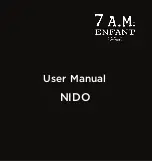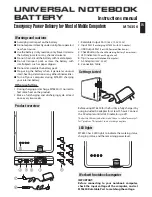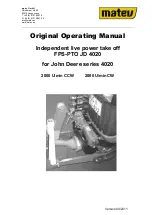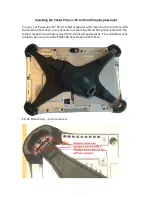
No options
1.
Remove 3 nuts (13 mm), 1 from the top of each AC
input busbar.
2.
Remove 3 nuts (13 mm), 1 from the bottom of each
AC input busbar.
3.
Remove the AC input busbars from the drive.
Mains fuses only
1.
Remove 3 AC fuses by removing 6 nuts (13 mm), 1
from each end of the fuses.
2.
Remove 3 nuts (13 mm), 1 from the top of each AC
input busbar.
3.
Remove the AC input busbars from the drive.
RFI filter only
1.
Remove 3 nuts (13 mm) at the top of the RFI filter, 1
per phase.
2.
Remove 6 nuts (13 mm) at the bottom of the RFI
filter, 2 per phase.
3.
Remove 4 thread-cutting screws (T20), which connect
the RFI filter to the side channels of the drive.
4.
Unplug the RFI cable from the MK100 connector on
the RFI printed circuit card.
5.
Lift the RFI filter from the drive.
Mains fuses and RFI filter
1.
Remove 3 AC fuses by removing 6 nuts (13 mm), 1
from each end of the fuses.
2.
Remove 3 nuts (13 mm) from the top of the RFI filter,
1 per phase.
3.
Remove 4 thread-cutting screws (T20), which connect
the RFI filter to the side channels of the drive.
4.
Unplug the RFI cable from the MK100 connector on
the RFI printed circuit card.
5.
Lift the RFI filter from the drive.
1.3.3 Removing Mains Input Terminal Block
To remove the mains input terminal block, use the following
steps. Refer to
Illustration 1.4
.
1.
Remove 2 screws (T25) at the bottom of the mains
input terminal block.
2.
Release the current sensor wiring from the cable
retaining clips.
3.
Slide the mains input terminal block downward to
disengage it from the 2 metal clips holding it in
place.
1.3.4 Removing Brake Terminals (Optional)
Drives can be configured with optional brake terminals. To
remove the brake terminals, if any, use the following steps.
1.
Disconnect the customer brake wiring, if present.
2.
Remove the R (+) terminal:
2a
Unfasten 1 thread-forming screw (T25) at
the terminal block.
2b
Unfasten 1 additional screw (T40).
3.
Remove the R (-) terminal:
3a
Unfasten 1 thread-forming screw (T25) at
the terminal block.
3b
Unfasten 1 additional nut (13 mm).
4.
Remove 2 nuts (13 mm) and lift the brake terminal
block from the drive.
1.3.5 Removing Motor Terminal Block
To remove the motor terminal block, use the following steps.
Refer to
Illustration 1.4
.
1.
Disconnect wiring to the motor and remove the
U/V/W terminal label.
2.
Remove the EMC shield by removing 1 screw (T25).
3.
Remove the U motor busbar:
3a
Remove 1 thread-forming screw (T25) from
the middle of the U busbar.
3b
Unfasten 1 bolt (T40) from the U busbar.
4.
Remove the V motor busbar:
4a
Remove 1 thread-forming screw (T25) from
the middle of the V busbar.
4b
Unfasten 1 bolt (T40) from the V busbar.
5.
Remove the W motor busbar:
5a
Remove 1 thread-forming screw (T25) from
the middle of the W busbar.
5b
Unfasten 1 bolt (T40) from the W busbar.
6.
Remove 3 current sensor cylinder busbars.
7.
Remove 2 screws (T25) from the bottom of the
motor terminal block.
8.
Remove the motor terminal block by sliding it down
to disengage it from the 2 metal retaining clips.
1.3.6 Removing Power Terminal Mounting
Plate
To remove the power terminal mounting plate, use the
following steps. Refer to
Illustration 1.3
.
Installation Instructions
300 A/500 A Current Sensor Kit for D2h/D4h/D7h/D8h Drives
VLT
®
FC Series FC 102, FC 103, FC 202, FC 302
4
Danfoss A/S © 07/2018 All rights reserved.
MI70V202



























